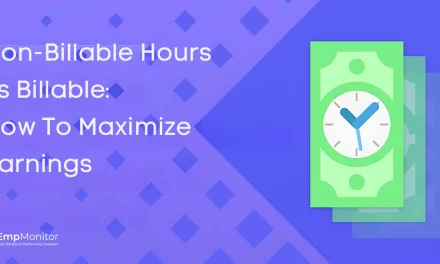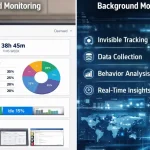People who get things done don’t just work hard. They work smart. Students need these work habits badly. They help in school. They help in future jobs too.
People who get things done don’t just work hard. They work smart. People should develop smart work habits. It helps students in school and it helps in future jobs too.
The Difference Between Busy & Productive
Many people confuse being busy with actually getting things done. They check emails all day. They go to useless meetings. They try to do many things at once. This feels like work. It’s not. Microsoft found that workers are only truly productive for 3 hours in an 8-hour day. The rest is just busy work.
Students make the same mistakes. They study for hours. They learn little. Why? They keep checking their phones. Smart work habits for success need real focus. Not just time. Set clear goals for each study session. Work in short bursts. Not long marathons.
Smart work habits for success need real focus. Not just time. Set clear goals for each study session. Work in short bursts. Not long marathons.
The best students use a method called “task batching.” They group similar tasks. All reading goes in one block. All math problems are in another. This cuts down on mental switching. It saves brain power. It makes work faster.
When deadlines get overwhelming, some students turn to trusted services like Essay Pay for support. It helps them focus on priorities while maintaining balance in their other work habits.
Breaking Free From Time-Wasting Habits
We all know the feeling. Working for hours. Getting nowhere. UC Irvine says it takes 23 minutes to refocus after one small break. Most people get interrupted all day long.
What works better:
- Do one task at a time
- Block all distractions
- Take short breaks (5-15 minutes)
- Set early deadlines
To build a from-busy-to-productive mindset, cut out what doesn’t matter. Cal Newport says to track your time for a week. Most people would be shocked to know that they waste hours each day.
Social media is one culprit that steals most time. The average person checks their phone 86 times a day, which hinders them from being more productive. Each check breaks focus. Try putting your phone in another room. Work quality goes up fast.
Building Systems That Work For You
Top performers don’t rely on willpower. They build systems. James Clear says your space matters more than your motivation. Don’t try harder. Change your setup.
Effective strategies in modern workplaces make good habits easier. Try these:
- Study in the library, not your room
- Use apps that block websites
- Create a study space with no distractions
- Get your stuff ready the night before
Some students earn money writing essays for others. Some use affordable dissertation writing services when time gets tight. Both can make sense.
The “two-minute rule” is one of the best work habits for many students. If a task takes less than two minutes, do it now. Don’t put it off. Quick emails? Do them. Short readings? Finish them. Small tasks pile up fast otherwise.
When Work Fits Natural Rhythms
Not all work habits are the same. Some think best in the morning. Others at night. Know your pattern.
Daniel Pink found that 75% of people think best in the morning. They slump in the afternoon. They recover at night. The other 25% follow different patterns.
Improving workplace efficiency through habits means working with your body clock. Track when you focus best. Do hard work then. Save easy stuff for low-energy times.
Schools don’t teach this. But it works. Some write best before 10 AM. Others solve math problems best after 8 PM. Know yourself.
Test timing is another useful work habit. Some students do better on morning exams. Others peak at night. Plan study times to match test times when possible. Your brain works better with practice.
Moving Forward: From Theory To Practice
Knowing isn’t doing. Start small. Try one new thing tomorrow. Maybe the Pomodoro method. Maybe time blocks.
Time management and productivity skills grow through practice. Not reading. Aim for steady, not perfect. Don’t get worked up, this step takes time and even experts mess up sometimes.
Tools like EmpMonitor can help track project progress, activity tracking, and help in building better work habits over time.
Look at companies with good work cultures. Some value results, not hours. Microsoft Japan tried a four-day work week. Productivity jumped 40%!
Find work you care about. It could be a campus job. It could be tutoring. It could be making content. Work you like makes you more efficient. When deadlines crush you, help exists.
Essay services offer more than papers. Customer support is responsive, friendly, and available 24/7 for assistance. The platform ensures secure payment methods, protecting user privacy effectively.
The path to being effective isn’t straight. Try stuff. See what works. Don’t aim for perfection. Aim for better. What works for one student fails for another. That’s fine.
What next? Pick one idea from this article. Try it tomorrow. Small changes add up fast.
Sleep matters more than most students think. Even one hour less makes you 30% less productive. Good sleep means better grades. It’s not lazy. It’s smart. Many top students sleep 7-8 hours each night.
Water and snacks help too. Your brain needs fuel. Keep water at your desk. Bring healthy snacks to long study sessions. Nuts work well. So does fruit. Skip the sugar rush. It leads to crashes later.
Standing up every hour is a healthy work habit. Move around, even for one minute. Blood flow helps your brain work. Sitting too long makes you tired and foggy. Some students use timers to remind them. Others use standing desks for part of the day.
FAQs About Smart Work Habits
What’s the first step to building better work habits?
Start by tracking how you spend your time for a week. Once you see where your hours go, it’s easier to spot what needs to change and where to add productive habits.
How long does it take to form a new work habit?
It usually takes around 21 to 60 days, depending on your level of consistency. Small, daily actions work better than big one-time efforts.
Can digital tools really improve my work habits?
Yes. Tools like EmpMonitor, Focus To-Do, or Notion help track time, block distractions, and measure productivity, allowing you to see what’s working.
How do I stay motivated when forming new work habits?
Start small and celebrate progress. Motivation often follows action. Once you see results, it’s easier to keep going.
Are smart work habits only for students or also for professionals?
They are for both. Students use them to manage studies and deadlines. Professionals use them to stay efficient and reduce burnout at work.











